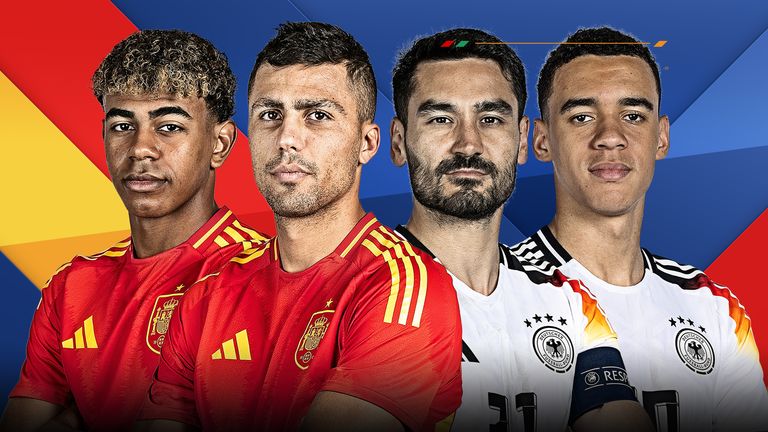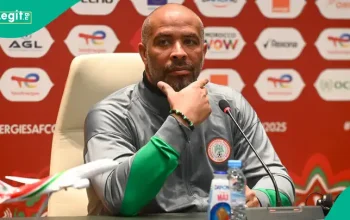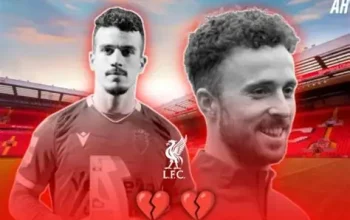Berlin, Germany – Host nation Germany is set to face off against tournament favorites Spain in the crucial Euro 2024 quarterfinals, vying for a coveted semifinal spot in Stuttgart.

The tournament has boosted national morale and economy, with beer and bratwurst sales doubling on national rail services and an anticipated 1 billion euros ($1.08bn) economic boost. However, beneath the surface, the event has also highlighted lingering divides in German football shaped by the country’s divided past.
As Euro 2024 reaches its critical stages, it is notable that none of the four quarterfinal matches, nor the semifinals or final, are hosted in the former East Germany. Of the ten host cities, only Leipzig’s stadium, RB Leipzig, represents the former East. This club itself has a controversial origin, formed two decades after reunification through a commercial takeover by Red Bull, which was unpopular among fans due to Germany’s 50+1 ownership rule.
Interestingly, only one player in the current German squad, 34-year-old midfielder Tony Kroos, hails from the former East Germany, the now-defunct German Democratic Republic (GDR). Kroos is set to retire after this tournament.
The German Football Association (DFB) did not address questions regarding efforts to bridge historical gaps or the criteria for selecting host cities. They pointed to UEFA’s stadium size requirements, which influenced the bid process. This reflects broader issues of infrastructure, revenue disparities, and representation in German football. Currently, only two teams from the former East are in the top-tier Bundesliga, highlighting a persistent divide.
Ulrich Hesse, journalist, author, and editor at 11Freunde, tells Al Jazeera, “It’s a fair reflection of the existing divide. One of the former East clubs is in Berlin, a unique city, and the other, RB Leipzig, has no historical ties to the GDR.” He adds, “This division traces back to the 1990s post-unification period and reflects older east-west divides.”
Alan McDougall, author of The People’s Game: Football, State and Society in East Germany, concurs: “The unification process in the 1990s integrated East German football into the West German framework, reflecting the economic and political nature of that period. These patterns persist in German football today.”
Germany’s Footballing Future
Addressing these disparities might involve inviting more outside investments into the football system. However, Germany’s unique 50+1 rule, which prevents major investors from owning clubs outright, complicates this solution. The only exception was Red Bull’s acquisition of SSV Markranstadt, now RB Leipzig, which exploited a loophole.
Hesse comments, “RB Leipzig didn’t break the letter of the law, but they did break its spirit. Replicating this would be difficult and unpopular.”
Moldenhaur believes focusing on youth development could help bridge some gaps. Hesse, however, is less optimistic: “The main issue is economic. Most wealthy German companies are based in the west, leaving the east with less infrastructure and money. The Leipzig story underscores this economic divide, which must be addressed before football can follow.”
Despite the ongoing challenges, Germany’s football landscape continues to evolve, with hopes that future efforts will create a more balanced and inclusive playing field for all regions.
Read also:
- UEFA Euro 2024: Portugal vs France Quarterfinal Match Preview
- Argentina vs Ecuador Highlights, ARG 1-1 ECU, Copa America 2024: Albiceleste Win Penalty Shootout (4-2) to Qualify for Semis
- FULL LIST: Lagos Receives 13 New Band A Feeders
- Iyabo Ojo Addresses Feud with VeryDarkMan
- Business Registration Process Now Completed in 24 Hours, Announces CAC Ambassador
- How to Fix the 403 Forbidden Error in 2024 (11 Methods)
- 10-Hour Rainfall: Businesses Grounded, House Collapses as Floods Overwhelm Lagos
- Moment Bride Loses Temper on Wedding Day
- Court Declares Edo PDP Governorship Primary Invalid
- Kemi Olunloyo’s son, Rich KJT responds to Iyabo Ojo, talks about his relationship with his mother
- Man Shocked to See Spaghetti Sold in Nylons for N100
- Charly Boy Reacts to Viral Photo of Nyesom Wike in N2m Denim Coat
- Grandma’s Joy as She Moves to the US, Vows Not to Return Home
- Tapswap Postpones Token Allocation Again
- Paul Pogba: I’m Committed to Fighting for My Career



